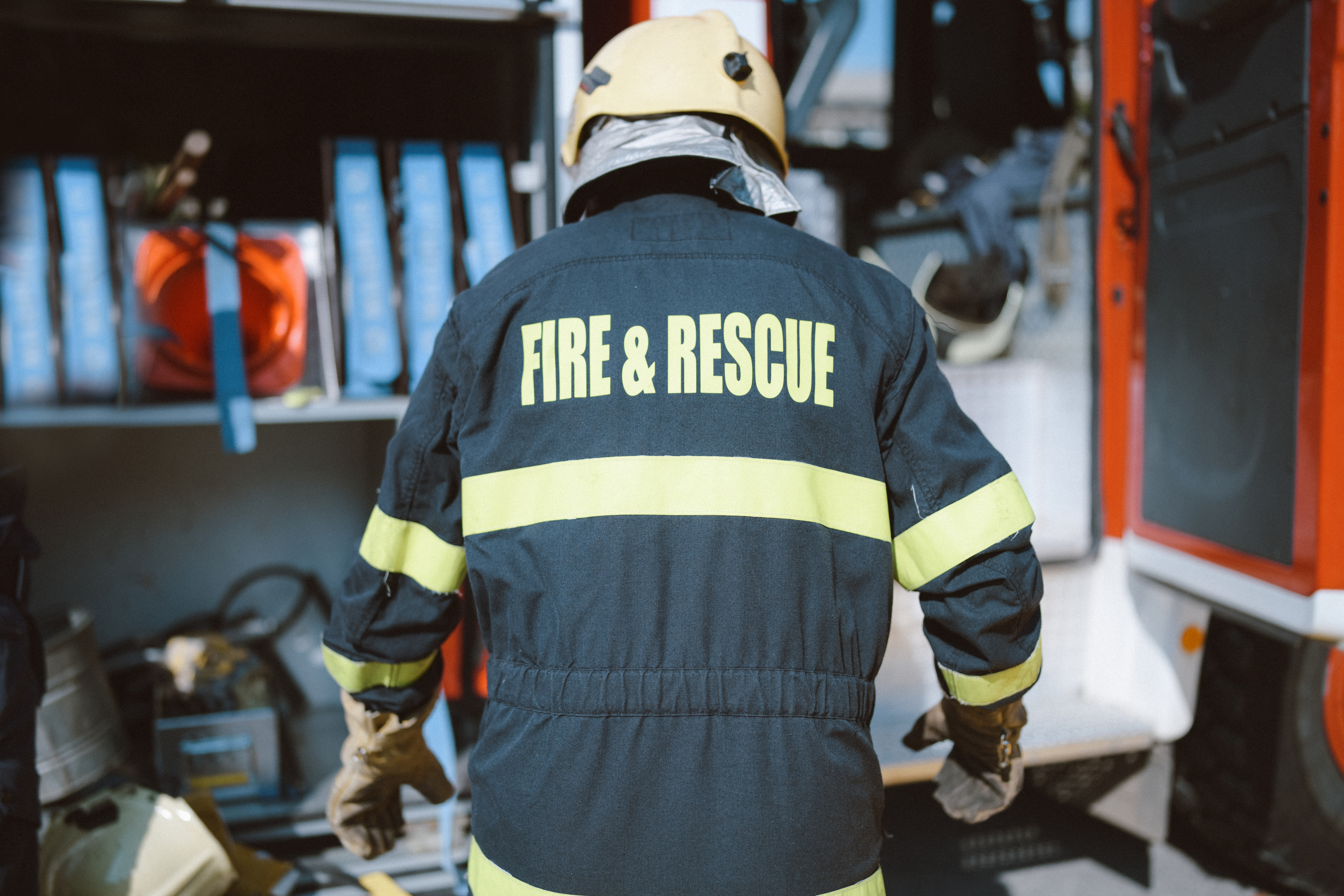News
CADER Training Leads Boston Firefighter to Pursue a Master’s in Social Work

During the first few months of the COVID-19 pandemic, Boston firefighter Abdul Jabbar Muhammad noticed a disturbing trend. “We were getting more and more calls about doing wellness checks on older residents, and we were finding them living in squalid conditions,” says the 20-year veteran firefighter, known as Brother Jabbar. He began snapping pictures with his phone during these encounters and sharing them with colleagues on the Investigation and Enforcement team. Brother Jabbar serves on this interdisciplinary group that tackles difficult cases, often involving mental health issues, and includes members from city agencies including fire, building, housing, and public health.
“We talked about the similarities in the cases and what we were seeing, and decided we needed to learn more about how to successfully work with [older adults],” he explains. Brother Jabbar researched training options in the area and was excited to discover The Center for Aging and Disability Education and Research (CADER) at Boston University School of Social Work (BUSSW). “I found three certificates that addressed the very issues we were seeing. I presented them to the team and got approval to enroll.”
Brother Jabbar completed those three CADER certificates—Behavioral Health in Aging, Ethics & Legal Principles, and Core Issues in Aging & Disability—in addition to the Hoarding course. Using his newfound knowledge and skills, he created new approaches to follow up on calls where older adults were found in unsafe conditions. He first worked on building relationships with them and then incorporated them as active members in creating their own safe living environments.
“I learned how important it is for these individuals to buy into self-care,” Brother Jabbar says. “It’s much easier and more effective to go in as a helper rather than as an authority figure with codes and regulations.” He also began building support networks with property owners or family members.
“We’ve seen some amazing results. This showed me that we just needed to give our men and women in the city the right tools, and say, ‘here’s how you use them,’’ he says. “I became extremely excited about sharing this knowledge with our team. In fact, I’d love to see this training become part of continuing education for EMTs.” With that goal in mind, Brother Jabbar completed the Train-the-Trainer Certificate program created by BUSSW’s Network For Professional Education so he can share this information with other first responders as well as health and human service professionals.
Brother Jabbar has been so inspired by his CADER experience that he now wants to earn a Master’s in Social Work. “Going through all of these programs reconnected me with my roots in social service,” he explains. “Before I was a firefighter, I worked in public health as a housing coordinator for a program serving individuals with HIV/AIDS.” This fall, he started the MSW Pathway training program at BUSSW, which seeks to increase the number of professionally trained social workers from underserved culturally and linguistically diverse BIPOC communities by preparing them for a master’s in social work program. He hopes to enroll in the BUSSW MSW program once he completes the training.
Brother Jabbar sees the value in having a licensed social worker as part of the Investigation and Enforcement team, both for the city of Boston and for individual older adults. “A licensed social worker can diagnose,” he concludes, “and with diagnosis comes services, which leads to city involvement and family involvement.”